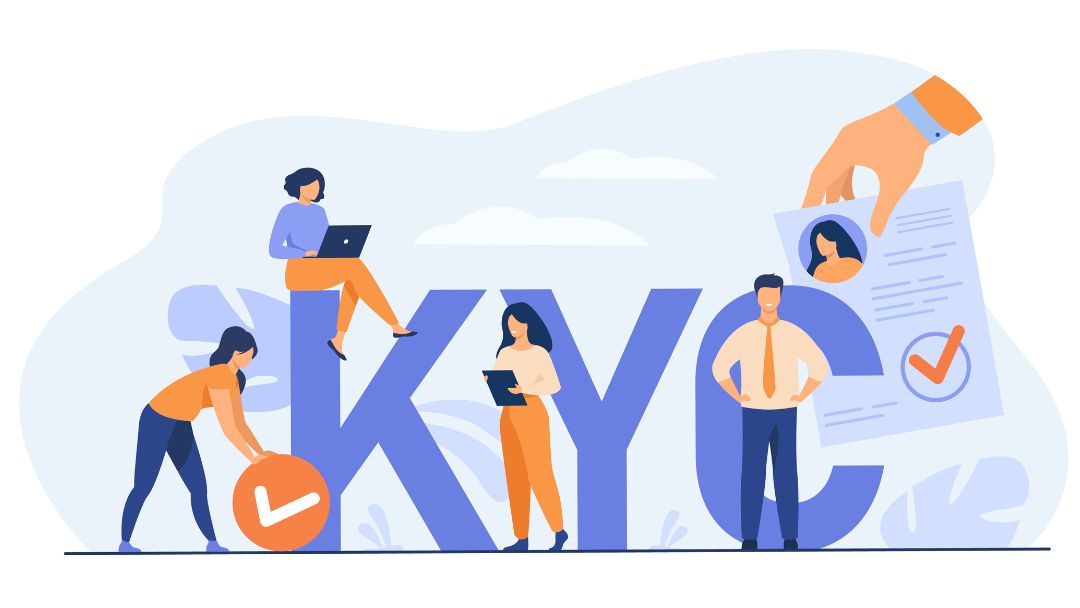Every year, an estimated $2 billion of criminal money is introduced into the banking system. Know Your Customer, commonly known as KYC, is a bank's or financial service provider's first line of protection against financial crime.
With problems related to corruption, terrorist financing and money laundering, KYC policies have become a fundamental tool in combating illegal transactions in the field of international finance.
KYC has become one of the main challenges that companies and institutions in any field are currently facing, being its proper development and integration that will define their activities, growth and operation.
Today we tell you everything you need to know about KYC and why it is so important for financial institutions.
The solution to financial fraud: Know Your Customer (KYC)
KYC or Know Your Customer refers to a series of processes designed to meet a set of standards that apply to the banking and investment industry, to verify a customer's identity, create a customer profile and recognize where the money they move within a service comes from.
Controls and KYC processes allow banks to get to know their new customers, understand where their money is coming from and ensure that money laundering is not involved. They do this by complying with legal requirements and current rules and regulations, such as AML, LGPD and eIDAS.
For many customers, it may be uncomfortable that the bank holds all this information about them, and it may even be annoying to answer certain questions. The truth is that banks are required by law to keep all this information about their customers up to date, so we can't get out of filling in the data on the form.
The extended use of new technologies and the Internet makes it necessary to define rules to help fight against online fraud. In this sense, the KYC procedure responds to a legal and global imperative for any type of business that wants to incorporate a user as a customer, especially necessary for financial companies, as well as insurance companies, real estate or, also, cryptocurrency exchange companies.
How does KYC work?
The KYC process involves three phases:
- Customer Identification Program (CIP). Here, requirements are established to determine and verify the identity of any person seeking to establish a relationship with a financial institution. The most basic data in this regard are your full name, ID card number, date of birth, residential address and full tax address. Of course, legislation may require more data to comply with different CIPs, but internationally, the basic data are these.
- Customer Due Diligence (CDD). At this point, the aim is to identify the customer and verify his identity using documents, data or reliable information from independent sources. In addition, this may include identifying the beneficial owner and taking reasonable steps to verify his identity so that the financial institution is satisfied that it knows who he is. For legal persons and other legal structures, this should include financial institutions understanding the ownership and control structure of the customer. At this point, the origin of the funds can also be investigated, especially if the person mobilizes high amounts frequently (e.g. moving more than €10,000 per day to different accounts).
- Ongoing monitoring or enhanced due diligence (EDD) of a customer's account once it has been established. In this last point, an attempt is made to find out some vital facts about the customer's source of funds or business data. For example, if the customer is an entrepreneur, you try to find out where his business is located, the nature of his business and the purpose of his operations. If, for example, the client is a salaried employee, we try to know where he works, how long he has been working there and his salary, to have a more complete profile.
These three points are basic to KYC and apply practically all over the world. However, each country or region has its own rules that may tighten or relax certain factors within KYC.
The importance of KYC
KYC is the most important part of maintaining a healthy financial system. KYC guidelines help prevent banks from being used by criminals for money laundering activities, but also enable them to better serve their customers and manage risks prudently:
For companies
If a company or issuer complies with KYC policies, it will reduce the financial risks of its business dealings with individual customers. Knowing a customer's source of revenue, gauging their ability to invest in your market and obtaining their complete financial portfolio and track record are important aspects of KYC requirements. These controls can also be vital risk management strategies to avoid becoming entangled in business relationships with potential customers who have engaged in illegal activities.
KYC procedures also help establish trust in a business relationship and provide the organization with insight into the nature of the customer's activities. Beyond that, they are a crucial part of the onboarding process and can significantly improve the service and management of clients throughout the relationship.
For clients
The importance of KYC may not be obvious from the customer's point of view, however, their protection is the priority of regulators. These rigorous controls can be an onerous process for the client, however, they create a safe and secure environment to enable financial or investment activities with the firm. Digital technology has enabled a much more seamless and streamlined onboarding experience, transforming a process that used to take months into an intuitive experience that can be done in minutes on any device. The technology behind protecting sensitive information has also evolved, with methods such as advanced authentication and encryption providing confidence to the customer base in every KYC procedure.
Why do we need KYC?
The main purpose of KYC is to obtain personal information from customers, check the veracity of the data and classify customers according to their relative risk for the use of banking and financial services.
In the early days, KYC verification and registration of new customers were done by hand. An employee would check one by one all supporting documents of the potential customer, as well as an appearance in international registers and lists. Performing KYC manually involves long verification times, and a great deal of human effort that can be accompanied by possible errors and high costs, among other things.
New technologies have revolutionized KYC and remote identity verifications. Artificial Intelligence technologies have made way for the automation of these tasks, making it possible to reduce waiting times and increase data accuracy, while ensuring real-time compliance. Some of the benefits of KYC automation include:
- Prevent fraud.
- Regulatory compliance.
- Reduce costs and time.
- Eliminate human error.
- Improve customer satisfaction by offering a fast, easy and secure experience.
Conclusions
Many financial services today require KYC. As you can see, KYC is essential not only for banks and fintechs, but also for their customers. In the end, if you want to have the best experience, you need to put all your trust in your financial institution.
Choosing one with only one KYC process for its financial services, that is secure, trustworthy and offers you the best service with hyper-personalised experiences is difficult, but not impossible.
Don't you believe it? Then check out Rizeapp: one app for all your financial needs.




